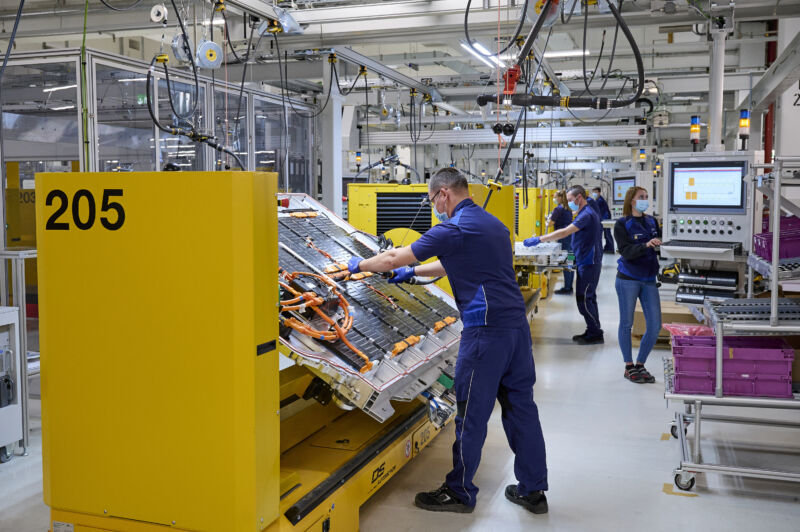-
 chevron_right
chevron_right
Supply chain shortages may make ambitious EV adoption goals unlikely
news.movim.eu / ArsTechnica · Thursday, 9 March, 2023 - 17:19 · 1 minute

Enlarge / A BMW worker assembles an iX battery pack at the BMW factory in Dingolfin, Germany. (credit: BMW)
Half of all new cars and light trucks sold in the US in 2030 should be zero-emissions vehicles, according to the White House's climate goals . California has set 2035 as the cutoff date for a ban on new gasoline- or diesel-powered vehicles within the state's borders. 2040 looks like the drop-dead date for new fossil fuel vehicles in some of Europe—not to mention a highly ambitious date of 2030 in the United Kingdom—and automakers on all continents are preparing all-electric lineups as they start to sunset internal combustion engine product lines.
But a survey of the auto industry conducted by ABB Robotics and Automotive Manufacturing Solutions finds some pessimism about whether those goals will be achievable. When asked if "it's realistic to shift to 100 percent electric vehicle production to meet the different regional targets from 2030 to 2040," only 11 percent said, "Yes, definitely"; fewer than 10 percent of European respondents believed the targets were realistic, compared with 12 percent in North America and 17 percent in Asia.
Another 28 percent said, "Yes, but it won't be easy." That left more than half of survey respondents believing that 2030–2040 is too soon for a move to entirely electric fleets. Forty-one percent said, "Possibly, but not by the target dates," leaving just 18 percent who could not ever see the end of the internal combustion engine.
